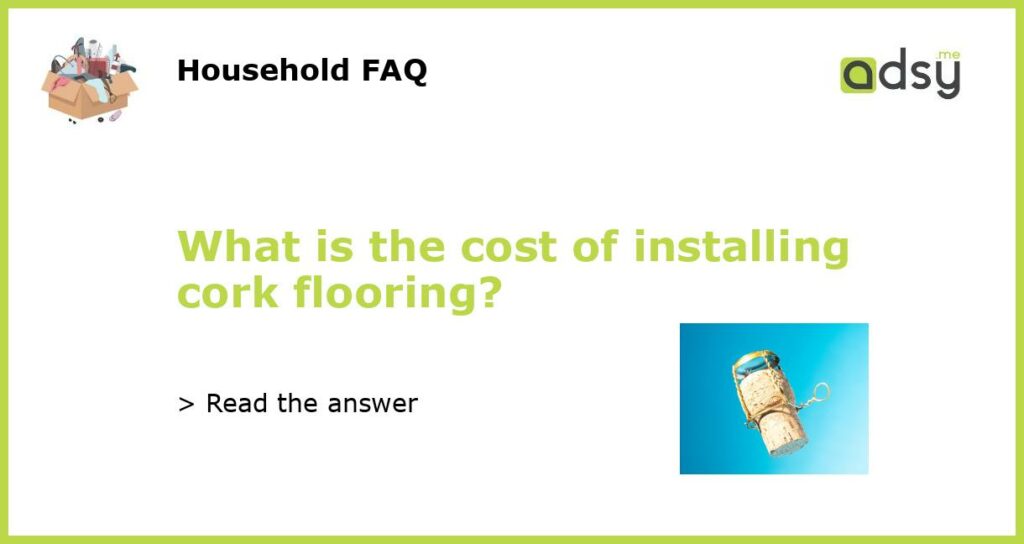Understanding the Cost of Installing Cork Flooring
If you’re considering cork flooring for your home or office, you may be wondering about the cost. Cork flooring offers numerous benefits, including durability, comfort, and sustainability. In this article, we will explore the factors that influence the cost of installing cork flooring and provide you with a better understanding of what to expect.
Material Costs
The first component to consider when calculating the cost of installing cork flooring is the material itself. Cork flooring typically comes in two forms: cork tiles and cork planks. The price of these materials can vary depending on the quality, thickness, and brand. On average, cork tiles can range from $3 to $8 per square foot, while cork planks can range from $4 to $10 per square foot.
Home Depot, Lowe’s, and other home improvement stores offer a wide selection of cork flooring options. It is advisable to compare prices from multiple providers to ensure you get the best deal.
Installation Costs
In addition to material costs, you should also factor in the expenses associated with installation. Cork flooring can be installed as a floating floor, glued down, or nailed down, each with varying installation costs.
If you opt for professional installation, the cost can range from $3 to $10 per square foot. The complexity of the project, such as the condition of the existing subfloor and any necessary preparations, can affect the overall cost. Keep in mind that installation costs may vary depending on your location and the specific contractor you choose.
Alternatively, if you have experience with DIY projects and feel confident in your abilities, you can save money by installing the cork flooring yourself. However, it is essential to research proper installation techniques and follow manufacturer guidelines to ensure a successful and durable installation.
Additional Expenses
While material and installation costs are the main components of cork flooring expenses, there are other factors to consider.
You may need to purchase additional materials such as underlayment, adhesive, and a moisture barrier, which can add to the overall cost. These materials help ensure the cork flooring remains stable and free from moisture damage.
In some cases, you may also need to hire a professional for subfloor preparation or repairs. Any existing flooring, such as carpet or hardwood, may need to be removed, which can incur additional costs.
Maintenance Costs
When considering the cost of cork flooring, it is essential to factor in the long-term maintenance expenses. Cork flooring is relatively low-maintenance compared to other flooring options.
Regular sweeping or vacuuming and occasional damp mopping are usually sufficient to keep cork flooring clean. However, you may need to periodically apply a protective sealant to maintain its durability and appearance. Sealants can cost around $30 to $50 per gallon, depending on the brand and quality.
Overall, the maintenance costs of cork flooring are minimal compared to more high-maintenance options like hardwood or carpet.
Return on Investment
While the initial cost of installing cork flooring may seem higher than other materials, it is important to consider the long-term benefits and return on investment.
Cork flooring is known for its durability and longevity. When properly maintained, it can last for decades, reducing the need for frequent replacements or repairs. Additionally, cork flooring offers excellent insulation properties, which can help lower heating and cooling costs over time.
Furthermore, cork is an eco-friendly and sustainable option. It is harvested from the bark of cork oak trees, which regenerate and can be harvested every 9 to 14 years without causing harm to the trees. Choosing sustainable materials can contribute to a healthier environment and may even add value to your property.
In conclusion, the cost of installing cork flooring can vary depending on several factors such as material selection, installation method, additional expenses, and maintenance. It’s important to weigh the upfront costs against the long-term benefits and consider the value and return on investment that cork flooring can provide.






